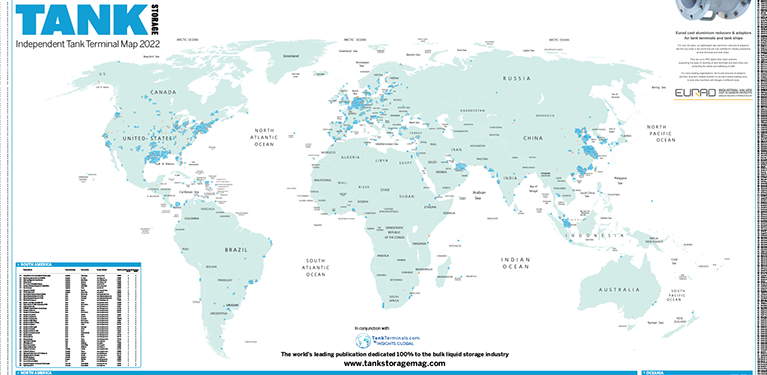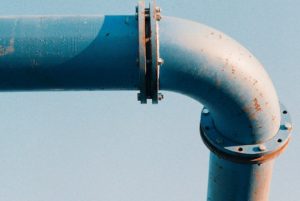The experts at Assentech explain how it’s pioneering solutions for engineers in quantifying and mitigating methane emissions in biogas sites
In an era marked by increasing environmental consciousness and a demand for sustainable solutions, the role of companies like Assentech Sales is paramount. As the global community grapples with the challenges posed by climate change, the biogas industry emerges as a critical player in the transition towards cleaner energy. Assentech, with its innovative products and a commitment to environmental responsibility, stands at the forefront of supporting engineers in biogas sites to tackle methane emissions, a potent greenhouse gas.
Pivoting To Biogas
Biogas has gained prominence as a cleaner alternative to traditional fossil fuels. Nevertheless, the biogas industry faces challenges, with methane emissions being a significant concern. Methane has a much higher warming potential than carbon dioxide, making its effective management a critical aspect of sustainable energy production. The Industrial Emissions Directive, (IED) requires that all sites undertake leak detection and repair (LDAR) planning, to demonstrate to the Environment Agency that all assets are regularly reviewed for leakage. A typical regulatory notice from the UK’s Environment Agency is issuing Regulation 61 notices and issuing substantial fines to any sites that fail to quantify their methane emissions.
Assentech recently helped a waste-to-energy facility facing potential enforcement actions for emissions violations. The facility, dependent on methane for electricity production, sought help as its breather vents were leaking significant volumes of biogas. The Environment Agency recorded significant leakage from breather valves using gas optical imaging cameras. Assentech’s engineers tested the valves using Vent-Less technology and found that they leaked 90CFH at 90% of set point. This translates into a gas cloud equivalent of 200 double decker buses over the year. Assentech replaced the vents with high-quality units, reducing the leak rate to 0.081CFH. Using the Intergovernmental Panel on Climate Change (IPCC) calculations, the initial losses were found to have an environmental impact cost of over £63,000 (€69,300) each per year and a net cost of lost gas of over £8,500. The replacement valves reduced the environmental impact cost down to £57 and a cost of lost gases to £7. The Environment Agency returned to this site following installation of the new valves and recorded no leakage using the optical gas imaging cameras.
Reducing Methane Emissions
Assentech recognises the importance of addressing methane emissions in biogas sites and has developed cutting- edge solutions to quantify and mitigate these emissions. One of its standout innovations is the Vent-Less Fully Automated Breather Valve Test Bench – which picked up a gold accolade at the Global Tank Storage Awards 2024. This range is engineered to enhance the efficiency and reliability of breather valves used in biogas storage systems. Breather valves play a crucial role in preventing overpressure or vacuum conditions within storage tanks, ensuring the safety and integrity of the entire system. However, conventional testing methods can be time-consuming, labour- intensive, and often result in unnecessary emissions. Assentech’s Vent-Less Test Bench revolutionises breather valve testing by offering a fully automated, vent-less solution. This not only streamlines the testing process but also significantly reduces methane emissions associated with traditional testing methods. By investing in such innovative solutions, engineers at biogas sites can achieve a dual benefit of operational efficiency and environmental responsibility.
Quantifying methane emissions is a key step in understanding and addressing the environmental impact of biogas operations. Assentech goes beyond merely providing equipment, offering comprehensive solutions for quantifying methane emissions at biogas sites. The team’s state-of-the-art monitoring systems provide real-time data, allowing engineers to make informed decisions and implement targeted measures to reduce emissions. The Vent-Less Test Bench range is a prime example of Assentech’s commitment to sustainability. By automating the testing process, this technology saves time and resources and also minimises the release of methane during routine maintenance. Its innovative design ensures the breather valves can be tested without venting methane into the atmosphere, a significant advancement in environmental stewardship.
Supporting New Energies
In addition to reducing methane emissions during routine testing, Assentech’s monitoring solutions enable biogas sites to quantify emissions accurately. This data-driven approach empowers engineers to identify areas for improvement and implement strategies to enhance overall system efficiency. By taking a proactive stance on emissions management, biogas facilities can contribute to a cleaner and more sustainable energy landscape. As governments and industries worldwide intensify efforts to combat climate change, measuring and reducing greenhouse gas emissions has become a priority. Assentech recognises the role of biogas in the transition to a low- carbon economy and provides the tools necessary for the industry to thrive responsibly. Assentech is playing a crucial role in supporting engineers in biogas sites in their journey towards cleaner energy production. As the biogas industry continues to evolve, Assentech’s commitment to innovation and sustainability positions them as a key partner in shaping a greener and more sustainable future.
For more information:
Assentech’s methane emissions calculator is free to use online.














